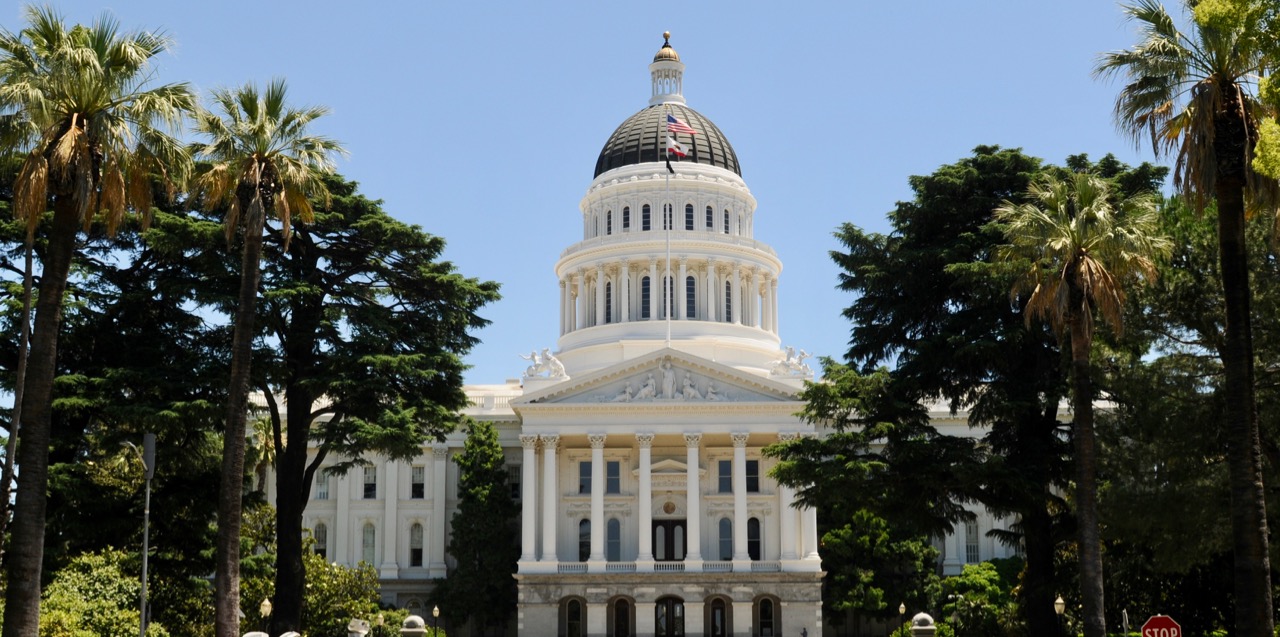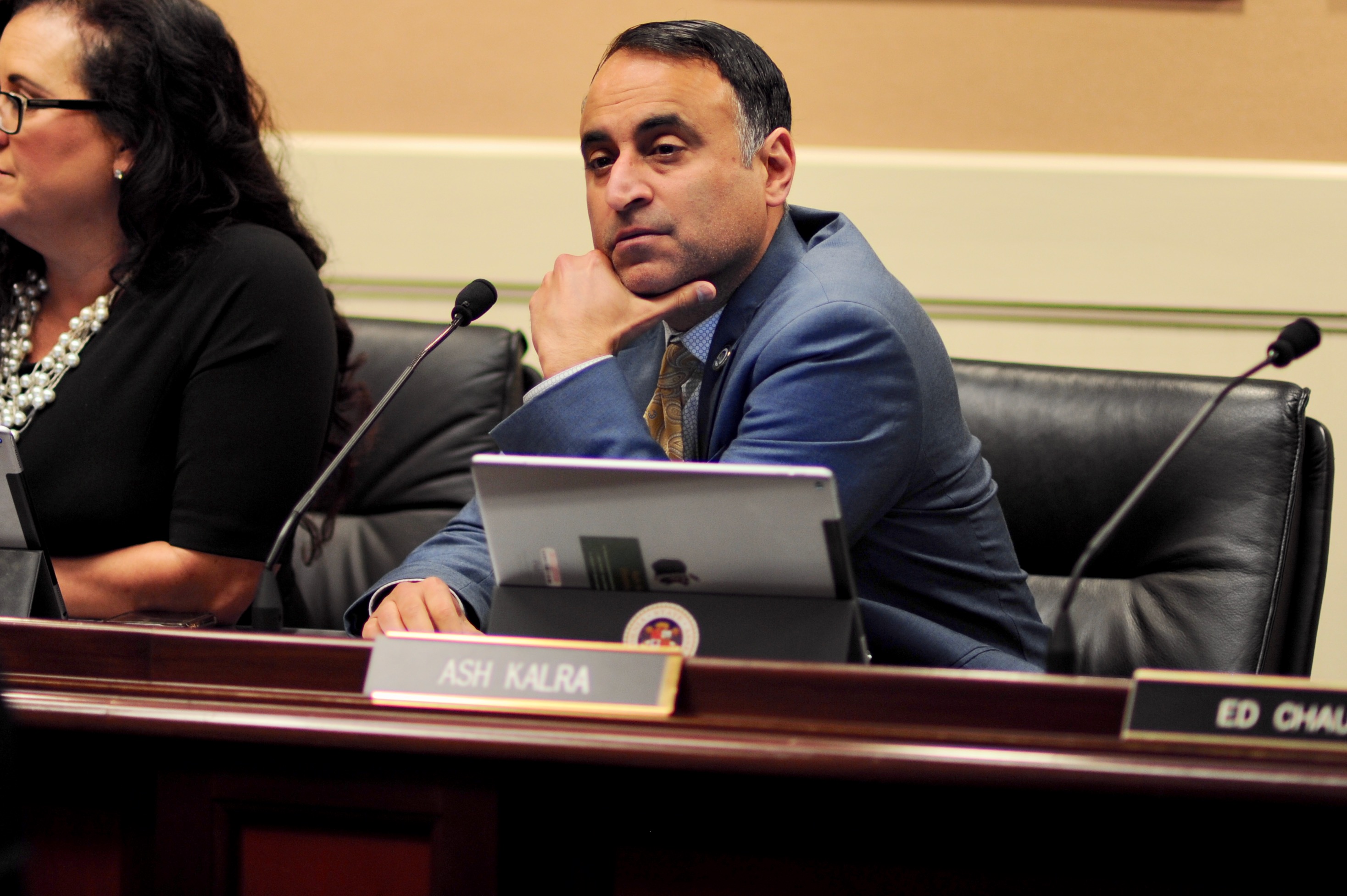
CA Gov. Gavin Newsom Florida ad. (Photo: gov.ca.gov)
Voters Hand Gov. Newsom First Statewide Minimum Wage Ballot Failure in California History
Voter rejection of Proposition 32 reflects Californian’s resentment of the impacts of the $20 fast food minimum wage law
By Katy Grimes, November 20, 2024 2:58 am
The failure of Proposition 32 marks the first time in California history that a statewide minimum wage ballot measure has failed. Proposition 32 would have increased the state minimum wage to $18 per hour.
This is huge. California voters said “no way” to another minimum wage increase, proving that the minimum wage is totally random, and was never intended to be anything other than an entry level wage for any industry.
Even working full time, $18 per hour totals $37,400 annually. In California, that’s still poverty level earning… because the cost of living in California is Marxist-level high.
The minimum wage in many California cities and industries is also higher than the new $18 per hour. As the Globe recently reported, “Currently, the minimum wage in San Francisco is $18.67 an hour, while West Hollywood has a $19.65 minimum wage. For fast food employees statewide, the minimum wage was raised to $20 an hour since April, although that endeavor has proved disastrous with over 5,400 jobs being lost so far as a result.”
Our economist friends at the Employment Policies Institute explain California’s minimum wage initiative loss in detail:
California voters rejected Proposition 32, a ballot initiative that would raise the statewide minimum wage to $18 an hour, by 50.8% to 49.2% The rejection marks the first time in California history that a statewide minimum wage ballot measure has failed.
The rejection comes on the heels of California’s $20 minimum wage law for fast food workers that has seen severe backlash from employees and business owners alike, and lead to a notable amount of business closures and job losses.
“Californians are sending Gavin Newsom and the SEIU a clear message: They’re sick of being lab rats for their pet projects,” said Rebekah Paxton, research director at the Employment Policies Institute. “Voters saw the devastating economic fallout of the $20 fast food minimum wage law, and for the first time in state history, voted against a statewide minimum wage hike.”
Some key details:
- After the implementation of the $20 minimum wage law, an EPI survey found that a majority of restaurants say they had raised menu prices (98%), reduced employee hours (89%), limited employee shift pick-up or overtime opportunities (73%) and reduced staff or consolidated positions (70%) as a result of the minimum wage law;
- Additionally, a majority of restaurants surveyed said in the next year they will have to raise menu prices (93%), reduce employee hours (87%), reduce staff or consolidate positions (74%), and limit employee shift pick-up or overtime opportunities (71%);
- The law has also led to a considerable drop in California’s fast food industry jobs shows the state is now down a net 4,400 jobs since January, when companies began sounding alarms about the new AB 1228 $20 minimum wage;
- The state has also seen the worst fast food job growth rate since the Great Recession;
- Governor Newsom and his allies at UC-Berkeley’s Institute for Research on Labor and Education called the law “modest” and said it had no real impact on workers, but EPI systematically debunked the study’s claims, showing the effect has been a net negative.
This is one of those come-to-Jesus moments that politicians hate – voters in California (in CALIFORNIA!) figured out the latest grift attempt between California Democrats and the SEIU.
Rejected. Buh Bye.
- Trump Responds, Issues Global 10% Tariff on all Countries - February 21, 2026
- What is Trump’s Plan B After Supreme Court Strikes Down Tariffs? - February 20, 2026
- New BLS Data Shows Union Membership Drives Falling Flat - February 19, 2026





I’m not quite sure the “message” has sufficiently sunk in. So, Trump has had quite an appeal nationwide, including California and New York. The minimum wage hike in California was struck down. However, Schiff was elected to the US Senate, Ocasio Cortez reelected to the House of Reps… Reportedly there were voters who cast their ballot for Trump over Harris, but might have voted for Bernie Sanders if he was running against Trump… And what about Scott Wiener, that turbocharged freakshow on rainbow wheels? Then US Republican Senators fail to show up to block the confirmation of a wildly flawed leftist judge to a federal bench in Florida, I think it’s a lifetime gig. Pelosi retained her congressional seat, I believe by a considerable margin, but I think her relevance has taken a huge hit. A friend once related the workplace notion that it’s best to leave while they still like you… Biden is burning everything down on the way out, and he has about two months to do a thorough job of it… This is rambling jumble of thoughts, but the clearest thought I have is that we are nowhere near being out of the woods, and that light at the end of the tunnel might just be attached to a locomotive.
Rafael, you are correct when you say “that we are nowhere near being out of the woods” the light that you refer to being attached to a locomotive is actually a spotlight of truth that is exposing all the lies and corruption that has deeply entrenched itself here in California and many other governments around the world. The locomotive itself is God who is shining the light of truth to bring about a course correction to California and the governments of the world.
Amen, Hal, Amen!
California is slowly changing, despite having little or no visible moderate leadership. Perhaps this is because more voters are bypassing the progressive propaganda from traditional media in favor of alternative media sources which people have found give a clearer picture of statewide and national issues. As an example, if MSM was still dominant, Kamala’s $1.2 billion dollars would have swept the field. Instead, she suffered an historic loss. Asian and Latino voters swung heavily to more moderate positions, resulting in the removal of progressive politicians, and although not strong enough yet to overcome blue haired cat ladies, unions, government employees, it’s getting closer. If we had voter ID, it just might turn the tide.
“…California voters rejected…by 50.8% to 49.2%…”
That’s not a great victory. Would it have passed at $16.50 or $17.
And why are fast food jobs worth $20 and not the cart jockey at the grocery store?
The minimum wage should be the lowest someone will accept for a job.
If Ebenezer doesn’t pay sufficiently, no one will do his accounting.
YESSSS! This is GREAT news.
The death grip that Noisome and his globalist masters have had on California is being loosed. Noisome won’t get to enjoy his new mansion for long.
” they had raised menu prices (98%), reduced employee hours (89%), limited employee shift pick-up or overtime opportunities (73%) and reduced staff or consolidated positions (70%) as a result of the minimum wage law;
Additionally, a majority of restaurants surveyed said in the next year they will have to raise menu prices (93%), reduce employee hours (87%), reduce staff or consolidate positions (74%), and limit employee shift pick-up or overtime opportunities (71%);” BROTHER YOU DON’T NEED A 300% PROFIT OFF THE BACKS OF THE POOR YOU CAN PAY THEM ENOUGH TO LIVE AND STILL KEEP THEM WORKING AT SLAVE LEVELS LOL
Food service is generally a tough gig with a perishible product and fickle customers with a thin margin who have to balance was is good and what is servicible to make a profit. An economics 101 fact that escapes leftists in general and internet trolls in particular: You can talk all day long about who pays “their fair share” in ways that appeal to a certain audience, but the fact is the customer pays each and every cost a business has to shell out. Raise those costs to the business and the customer ends up paying the elevated costs at the retail price. That is, until the customer can’t or won’t pay the elevated price. When that happens the business fails. Before Jan 20, 2020, the average local (to me) menu price for a sit down restaurant breakfast with servers was around $13 for what I usualy eat, no drinks, before tips and taxes. It’s now between $17 and $19. By time I cash out my cost is from $25 to $29. The dining out customers are fewer than they used to be (volume down, higher volume can better absorb higher costs) because they are preoccupied with the present unpleasant choice of buying gas to get to the store or buying groceries once there. A family that’s scrimping to eat at home will easily part with $100 for one meal in a restaurant. Do the math.